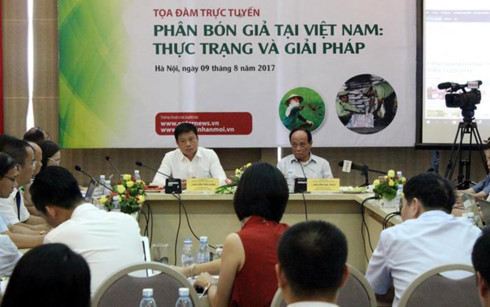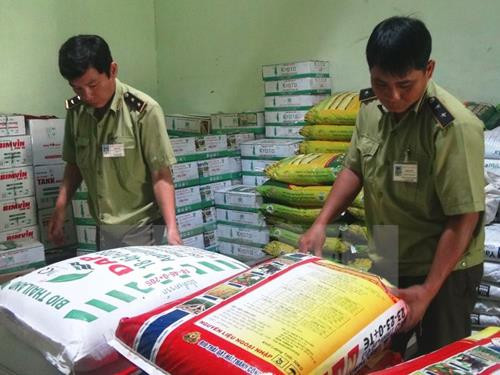Paradox of real fertilizer but... fake quality!
The current 800 licensed fertilizer production and trading establishments nationwide are too large. It is necessary to consider reducing them to 300 enterprises, which will be easier to manage.
In addition to affecting the reputation of legitimate businesses and distorting the market, fake and counterfeit fertilizers have actively contributed to destroying the agricultural industry, affecting the quality of farmers' agricultural products, and lowering the reputation of Vietnamese agricultural products in foreign markets.
Administrative penalty is too light
According to statistics from the Ministry of Industry and Trade, there are currently about 800 licensed fertilizer production facilities nationwide. However, the actual number has reached thousands of unlicensed fertilizer production facilities and units. This reality makes this market increasingly difficult to control, making it difficult to completely eliminate fake and counterfeit fertilizers.
 |
| Many solutions on fertilizer market management were presented at the seminar "Fake fertilizers in Vietnam: Current situation and solutions" on the afternoon of August 9. |
At the seminar "Fake fertilizers in Vietnam: Current situation and solutions" organized by the Vietnam Chamber of Commerce and Industry (VCCI) in coordination with the Vietnam Fertilizer Association on the afternoon of August 9, experts and representatives of fertilizer enterprises said that the situation of fake fertilizers is still very complicated, with a tendency to be higher year after year, and many cases have not been resolved because our laws still have loopholes.
Mr. Nguyen Hac Thuy, Vice President and General Secretary of the Vietnam Fertilizer Association said: “There have been many meetings held to amend and issue a new Decree on fertilizer management. Currently, this new Decree has been participated in by ministries and placed on the Prime Minister's desk. It is possible that it will be considered in August, but the biggest problem at present is group interests.”
The situation of fake, poor quality, and unknown origin fertilizers has been happening frequently for many years in many areas, causing water risks, environmental pollution, and great damage to legitimate production and business enterprises and farmers.
Domestic enterprises often produce poor quality inorganic and organic fertilizers but label them with famous brands of foreign origin, completely failing to comply with the standards set by the Ministry of Industry and Trade.
Difficult to manage because of quantity
Representing the manufacturing business sector, Mr. Vu Xuan Hong - Deputy General Director of Lam Thao Super Phosphate Chemical Joint Stock Company stated that the business community is most worried about the quality of massively produced fertilizers, often called counterfeit goods.
“Currently, we do not have standards to determine equivalent fertilizer products, but many manufacturing units are still licensed to produce, have certificates of conformity and compliance, making it impossible for people to distinguish between genuine and fake products. Only when checking the quality of specific products can we discover deviations from the standards registered by the business,” said Mr. Hong.
 |
| Authorities check detailed information on fertilizer packaging. |
Therefore, according to Mr. Hong, fake fertilizers are a very painful problem. The nutrient content for plants in fake fertilizer products is very low, while businesses are still "ambiguous" in declaring the content and packaging design, deceiving people and management agencies.
Also at the discussion, Mr. Hoang Van Tai, General Director of Van Dien Phosphate Fertilizer Company, said that we can fight against fake fertilizers but we cannot fight against real fertilizers with fake quality because they are all licensed, certified, and have clear stamps. “I feel like we are fighting against “windmills,” Mr. Tai said.
Faced with the sad reality in the field of fertilizer production and trading, many businesses have said that it is necessary to tighten the fertilizer market by "eliminating" production and trading units.
“In fact, the number of 800 licensed establishments is currently too large. It is necessary to consider “purging” only about 300 businesses operating in this field, which would be reasonable and easy to control, in order to create a healthy fertilizer market and create trust for farmers,” the businesses jointly proposed./.
According to VOV
| RELATED NEWS |
|---|


